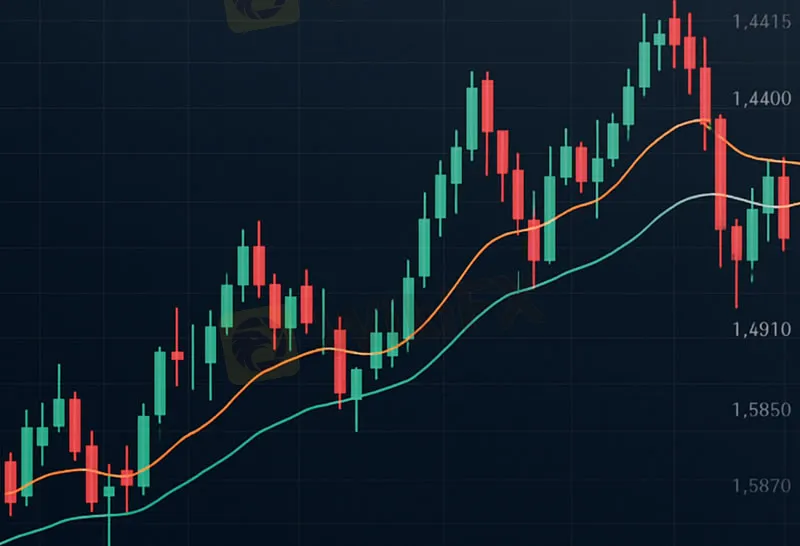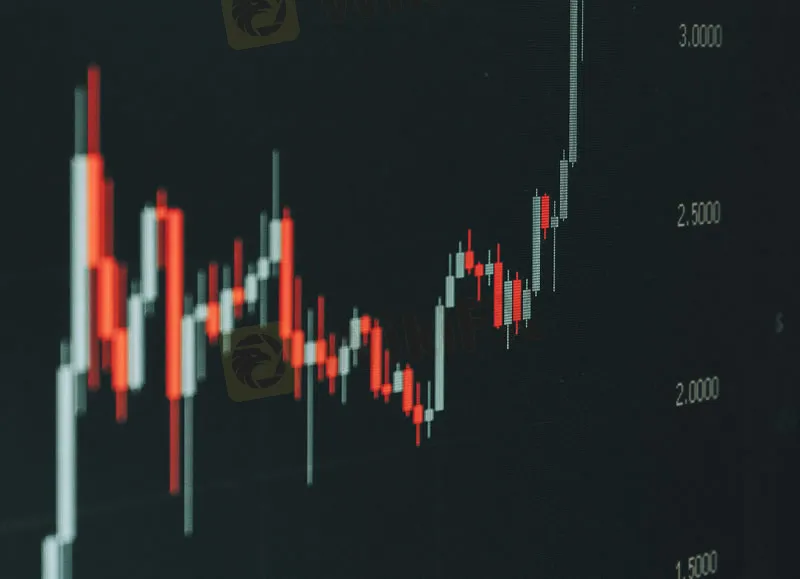How to make money on forex
Forex trading is a popular way to make money online. It involves buying and selling currencies to earn profits.
Many people are drawn to forex for its potential high returns. But success requires knowledge and strategy.
Understanding the basics of forex trading is crucial. This includes knowing how currency pairs work and the role of leverage.
Forex trading success depends on discipline and a strategic approach. It's not a get-rich-quick scheme.
To make money trading, you need to analyze market trends and use reliable platforms. Risk management is key.
Some people make money on forex without trading directly. Options like copy trading or forex funds are available.
Forex trading offers opportunities for both short-term and long-term profits. But it also comes with risks.
This guide will help you navigate the forex market. Learn how to trade in forex and earn foreign exchange effectively.
What is Forex Trading? Understanding the Basics
Forex trading involves exchanging one currency for another. It's the largest financial market, trading trillions daily.
In forex, currencies are paired, such as EUR/USD. Traders speculate on the value changes between these pairs.
Understanding forex trading basics starts with knowing currency pairs. One currency is the base; the other is the quote.
Here's a quick breakdown:
- Base Currency: The first currency in the pair.
- Quote Currency: The second currency in the pair.
- Exchange Rate: How much of the quote is needed for one unit of the base.
Traders use leverage to control larger positions with a smaller amount of money. However, leverage amplifies both profits and losses.
Forex trading is influenced by global events, economic data, and geopolitical factors. Staying informed is essential for success.
If you're new to forex, start with a demo account. Practice without financial risk to understand market movements.
Mastering the basics sets the foundation for profitable forex trading. With knowledge and strategy, you're on your way to forex success.

How Do People Make Money on Forex?
People make money on forex by buying and selling currency pairs. The goal is to profit from exchange rate fluctuations.
Profit in forex comes from correctly predicting price movements. Traders use various strategies to analyze markets.
Successful traders rely on a mix of tools and techniques. Here are some common methods:
- Technical Analysis: Study charts and patterns.
- Fundamental Analysis: Focus on economic indicators and news.
- Sentiment Analysis: Gauge market mood and behavior.
Knowing when to enter and exit trades is crucial. Timely decisions can maximize gains or minimize losses.
Forex trading platforms offer tools like stop-loss and take-profit orders. These help manage risks effectively.
It's important to only trade with money you can afford to lose. This mindset helps maintain financial discipline.
Leverage can increase both potential gains and losses. Use it wisely to make it an ally, not a foe.

Building a robust trading plan can lead to consistent currency trading profits. Stay informed and adaptable to navigate the market successfully.
Key Forex Trading Strategies for Profit
Developing the right trading strategy is essential for achieving forex trading success. Each strategy caters to different market conditions and trader preferences.
Scalping is a quick-paced strategy that focuses on small price changes. Traders enter and exit multiple trades within minutes.
Day trading involves capitalizing on intraday price movements. It requires traders to close all positions by the end of the trading day.
Swing trading targets larger price swings over several days. It's well-suited for those who prefer a more relaxed pace.
Position trading is a long-term strategy. Traders hold positions for weeks or even months, focusing on fundamental economic trends.
Tips for Successful Trading
Understanding the fundamentals of these strategies is crucial. Here are some key steps to follow:
1. Create a Solid Trading Plan
A well-defined trading plan helps you stay focused and disciplined. It should include your goals, risk tolerance, entry/exit rules, and the strategy youll follow. Trading without a plan often leads to emotional decisions and losses.
2. Manage Your Risk Wisely
Always use risk management tools like stop-loss and take-profit orders. Never risk more than a small percentage of your capital on a single trade. Protecting your capital is more important than chasing profits.
3. Keep Emotions in Check
Emotions like fear and greed can cloud your judgment. Stick to your strategy, and avoid revenge trading or overtrading. Staying calm and objective is key to long-term success.

4. Focus on Continuous Learning
The market is always changing, so keep learning. Read books, attend webinars, and follow market news. The more you know, the better decisions youll make.
5. Start Small and Grow Slowly
If youre a beginner, start with a demo account or small trades. Gain experience before risking larger amounts. Patience and practice go a long way in trading.
6. Track and Review Your Trades
Keep a trading journal to record your trades, strategies, and mistakes. Reviewing your performance regularly helps you learn from errors and improve over time.
Scalping, Day Trading, Swing Trading, and Position Trading
Scalping suits traders seeking quick returns. Time-consuming but effective, it requires close monitoring of markets.
Day trading is ideal for traders who prefer short-term commitments. It's essential to stay updated on daily news and market developments.
Swing trading offers flexibility and avoids the stress of constant monitoring. It suits traders who can analyze market cycles over days.
Position trading is for those who can weather long-term market trends. It requires a strong understanding of economic indicators.
Key Differences Between Strategies
- Time Commitment: Scalping requires the most, while position trading is the least time-intensive.
- Market Focus: Day traders and scalpers rely heavily on technical analysis. Swing and position traders can benefit from a mix of technical and fundamental analysis.
- Risk Levels: Scalping and day trading involve high risk due to frequent market exposure. Position trading mitigates risk through longer timeframes.
How to Start Forex Trading: Step-by-Step Guide
Starting in forex trading can seem daunting, but with a structured approach, you can ease into it with confidence. First, educate yourself about forex trading basics to grasp essential concepts. To begin, choose a trustworthy forex broker, as this step is crucial for facilitating your trades and impacting your experience. Look for brokers with good reputations and transparent fees. Next, open a trading account through a simple sign-up process that requires basic information and documentation. Before risking real money, practice with a demo account to build your skills in a risk-free environment. Developing a robust trading plan is vital, outlining your goals, risk tolerance, and strategies, which should be regularly reviewed and adjusted. When ready, fund your account with money you can afford to lose, always applying sound risk management to protect your capital.
Steps to Start Forex Trading:
Starting your forex trading journey? Heres a beginner-friendly guide to help you get started the right way and avoid common pitfalls:
- Learn the Basics of Forex Trading
Before risking real money, take time to understand how the forex market works, key terms like pips, leverage, spreads, and how currency pairs are traded. Education is your strongest foundation.
- Choose a Trusted and Regulated Broker
Pick a reliable forex broker with a solid reputation, strong regulation, and user-friendly platforms. Look for brokers that offer Islamic accounts if you want to trade halal.
- Open and Verify Your Trading Account
Register with your chosen broker and complete the KYC verification process by submitting valid ID and documents. This unlocks full access to trading features and ensures security.
- Practice with a Demo Account
Use a demo account to explore the platform, test your strategy, and build confidence—all without risking real money. Its the safest way to learn by doing.
- Create a Smart Trading Plan
A good trading plan includes your goals, risk limits, trading strategy, and entry/exit rules. Stick to it! Consistency is key in managing emotions and avoiding impulsive trades.
- Fund Your Account and Start Trading
Once you're ready, deposit funds into your live account and start trading! Start small, manage your risk, and always trade with discipline.

Stay informed about global markets, as news can heavily influence forex. Continual learning is crucial, and engaging with forex communities can provide valuable insights for your trading journey.
Choosing a Reliable Forex Broker
Selecting a reliable forex broker is crucial for trading success. A good broker ensures efficient trade execution and offers a secure trading environment. Consider their reputation and regulatory compliance.
When evaluating brokers, check their fee structures. Transparent pricing without hidden charges benefits traders by maximizing potential profits. Also, examine the quality of customer support as timely assistance can resolve issues quickly.
Test their trading platform. It should be user-friendly and feature-rich with necessary analysis tools. This will enhance your trading experience and improve decision-making.
Key Factors for Choosing a Broker:
- Regulatory compliance and reputation
- Transparent fees and costs
- Responsive customer support
Choosing the right broker can directly impact your trading outcomes. Spend time researching and testing different platforms to find the best fit for your needs.
Managing Risk: The Key to Forex Trading Success
Managing risk is vital in forex trading to protect your capital. Without proper risk management, even profitable strategies can lead to losses.
To start, determine your risk tolerance. This will guide your trading decisions and help maintain balance. Knowing your limits keeps emotions in check during turbulent times.
Implement risk-reward ratios. Aim for setups with favorable odds. A good rule of thumb is a 1:2 ratio, risking $1 for every $2 you plan to gain.
A stop-loss order is essential. Place it strategically to protect against excessive losses. It's your safety net during unexpected market moves.
Diversifying your trades minimizes risk concentration. Avoid placing all your capital in a single trade or currency pair.
Risk Management Techniques:
- Define risk tolerance
- Use risk-reward ratios
- Set stop-loss orders
Diversification Strategies:
- Trade multiple currency pairs
- Vary trade sizes and durations
Effective risk management ensures long-term success and preserves your trading capital. Stay disciplined and adhere to your risk management plan consistently.
Forex Trading Tips for Beginners
Starting in forex can be daunting without the right guidance. As a beginner, you'll need foundational tips to build your skills.
First, focus on learning the basics. Understand currency pairs, pips, and spreads to grasp core concepts. Familiarize yourself with the forex market's unique dynamics.
Practice makes perfect. Use demo accounts to simulate trading without risking real money. This allows you to explore different strategies safely.
Listening to seasoned traders can be invaluable. They offer insights and lessons from real experiences, often giving advice that textbooks miss.
Beginner Forex Tips:
- Learn the basics thoroughly
- Practice with demo accounts
- Listen and learn from experienced traders
Stay updated with global news. Economic events can trigger significant market changes. Keeping informed aids in making educated trading decisions.
Remaining patient and disciplined is essential. Forex trading is a marathon, not a sprint, and consistent learning will pay off in the long run.
How to Make Money on Forex Without Trading
You can earn from forex without executing trades yourself. Several passive strategies can generate profits in this market.
One option is to invest in forex managed funds. These funds allow professional managers to trade on your behalf, handling all decisions.
Alternatively, consider copy trading. This involves mimicking the trades of successful traders through online platforms, aligning your investments with their expertise.
Ways to Make Money Without Trading:
- Invest in managed forex funds
- Use copy trading platforms
These methods let you tap into forex opportunities without active trading. It's crucial, however, to research thoroughly and choose reputable services to ensure your investments are in good hands.
Is Currency Trading Profitable? Myths and Realities
Currency trading can indeed be profitable. However, it is not a guaranteed path to riches. Success depends on knowledge, strategy, and discipline.
Many myths surround forex trading. Some believe it is a shortcut to easy money. This misconception leads to unmet expectations and potential losses.
Common Myths and Realities:
- Myth: Forex is easy money.
- Reality: It requires skill and patience.
- Myth: You need large capital to start.
- Reality: Many platforms offer low minimums.
Forex offers opportunities for profit. However, it also involves risks. To succeed, traders must balance expectations with realities. It's crucial to approach the market with a strategy and ongoing learning to truly leverage its potential.
Common Mistakes to Avoid in Forex Trading
Forex trading can be a rewarding venture. However, many traders fall into common traps that can hinder their success. Understanding these pitfalls is essential for long-term trading success.
Avoiding mistakes involves learning from other traders' experiences. New traders often risk too much too soon. It's important to start small and build confidence gradually.
Mistakes to Watch Out For:
- Neglecting risk management.
- Trading without a solid plan.
- Ignoring market analysis.
- Allowing emotions to dictate trades.
By being aware of these mistakes, traders can create a more disciplined approach to trading. This strategic mindset helps in navigating the complex world of forex with a clearer path to profits.
Frequently Asked Questions About Making Money on Forex
New traders often have many questions about forex. Understanding the market is crucial for success. Let's address some common queries.
How much money do I need to start? You can begin with as little as $100. However, more capital allows flexibility and better risk management.
Is forex trading risky? Yes, all trading involves risk. Managing it effectively is key to long-term profitability.
FAQs:
- What is a pip?
- How does leverage work?
- Can I trade part-time?
- Do I need a broker?
Understanding these fundamentals helps in navigating the complexities of forex. Continuous learning and practice are essential for mastery and achieving forex trading success.
Conclusion: Building Your Path to Forex Trading Success
The journey to forex trading success involves commitment and strategic planning. Equip yourself with knowledge and stay informed about market trends.
Success in forex is achievable with discipline and practice. Continuously refine your strategies and learn from your experiences. Stay patient, and over time, your dedication can lead to significant financial rewards.
More News




Best Forex Broker
latest News




